Managing forests sustainably is a complex process requiring many skilled and knowledgeable people. There are planning foresters who consult with wildlife biologists and hydrologists to ensure all environmental factors are considered when making short and long term forest management plans. There are silviculture foresters who ensure that all harvested areas are regenerated withing two years.
In this forestry career profile Wade Aebli tells us about the role that operations supervisors play in the complex process of balancing the needs of humans with the needs of a healthy forest.
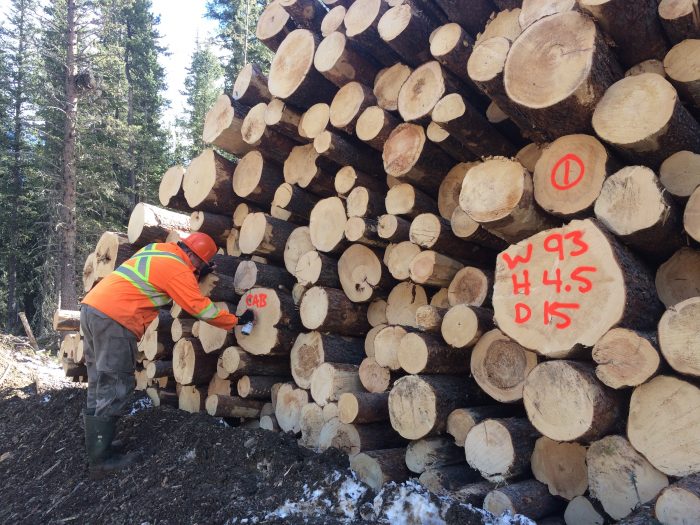
Tell me about your job.
I am a Registered Professional Forest Technologist employed with Spray Lake Sawmills (SLS). I am the operations supervisor for the C5 Forest Management Unit, one of three Management Units that SLS operates within.
What role do operations supervisors play in the forest industry?
An operations supervisor plays a very diverse role in the forest industry. Our primary focus is to ensure the safety of our workers and worksite(s) as well as the safety of the public that may interface with certain phases of the operation. Another primary focus of the operations supervisor is to ensure that we are complying with all environmental regulations and striving to continually improve our practices for the benefit of the forest and watershed. Training of existing personnel as well as any new workers is very important to achieve the aforementioned objectives. Another focus of the operations supervisor is maintaining an efficient operation so that production goals are met. The operations supervisor is also responsible to liaise with government regulators, other stakeholders, non-government organizations, and the general public.
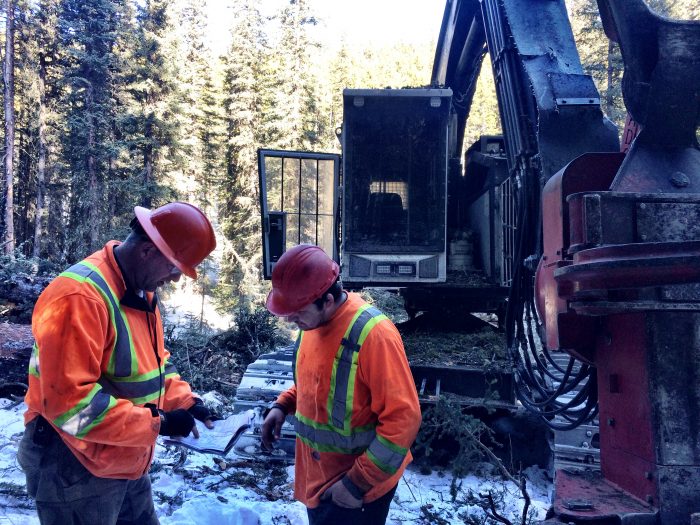
What is your professional background?
I have a diverse background in the forest industry. I graduated from the NAIT Forest Technology program in 1993 and have been employed in various aspects of the sector ever since. I have worked for a number of forestry consulting firms as well as owning and operating my own consulting operation during my career. My work as a consultant consisted of:
- Timber cruising
- Road and cutblock layout
- Eco-site classification and preparation of silviculture prescriptions
- Preparation of annual operating plans
- Planting and stand tending supervision project management
- Firefighting
- Maintenance and development of a variety of recreational trails
As a consultant I even learned to drive a logging truck and spent an entire winter hauling logs for SLS. During my career I have also worked for three significant industry organizations, one of them being Spray Lake Sawmills. Operations supervision has been my main role with all three of the organizations, but I also had significant roles in the harvest planning phase of the operations as well as fibre purchase duties.
What made you decide to take this career path?
I chose this career path for a number of reasons. The main reason was my love of the outdoors and having the opportunity to work in a natural setting. Beyond that, I come from a family that has been involved in the forest industry for generations. My grandfather hauled lumber from sawmills in an era when sawmills were still set up in the forest. My dad and my brothers all worked in various roles in the bush ranging from hand falling, skidding, road building, log loading, and log hauling. The operational side of the industry has always interested me a great deal; therefore, becoming a forest technologist gave me the perfect opportunity to combine my love of the outdoors and the logging industry and build a rewarding and fulfilling career out of it.
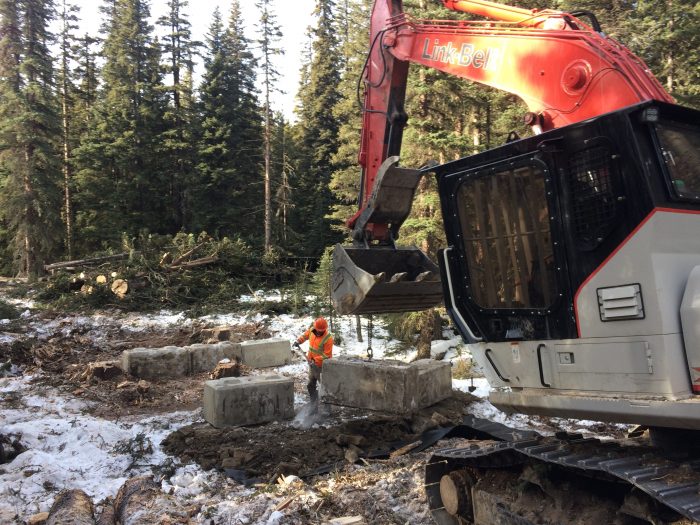
What does a typical day/week look like for you?
A typical day for me starts out in my office for a brief period of time. I have email and messages to check and gear and supplies to gather. Completing my safety paperwork to ensure that I have considered and addressed all the hazards that I anticipate facing is a very important component of my day. From there, I head out to the worksite. Once on site I check or monitor many aspects of the operation including:
- Progress of road construction operations, harvesting operations, and/or hauling operations
- Assessing the condition of the haul roads and considering maintenance needs
- Checking the condition and functionality of stream crossing or other drainage structures
- Posting signage for the public and/or workers
- Meeting with the harvesting contractor to address or remedy any technical difficulties they may be experiencing with the plan
- Conducting safety audits and inspections on personnel and equipment and ensuring that all workers are in compliance with our policies
- Organizing workers and/or support resources to ensure the operation can continue to operate in a safe and efficient manner
- Measuring production and processing payment for various contractors
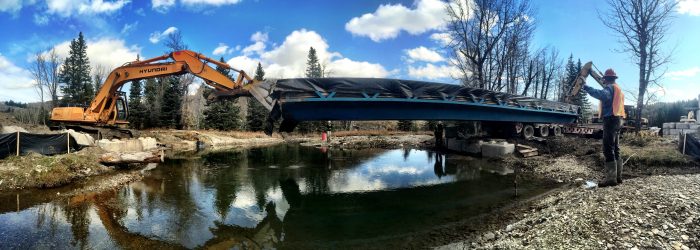
What aspects of your job do you enjoy the most?
My favorite aspect of my job is working with the people and equipment associated with our industry, and seeing the job through to a positive outcome. The machinery that is used in a typical modern day harvesting operation is very specialized and has evolved immensely even during the time that I have worked in the industry. In our harvesting and road construction practices we are always striving for improvement and that gives me a great deal of satisfaction as well.
What is the coolest thing you’ve been able to do?
It is difficult to think of a single event that I’d call the “coolest”. Almost daily I get to experience the wonders of nature, especially in the Rocky Mountains of Southwestern Alberta. Often we get to see wildlife in their natural habitat, exhibiting natural behavior, something not everyone gets to experience in person. During my career, I have also been witness to several natural disasters including forest fires and floods and experienced firsthand the awesome power of nature.

What are some of the challenges you have faced?
In my job there are many challenges, but I think they can mainly be categorized into three main themes:
Technical challenges: Things like road locations, stream crossings, steep slopes, quality/quantity of the timber resource, management of expenditures, rock, snow, adverse weather, or moisture conditions
Personnel challenges: Maintaining a skilled, conscientious, and motivated group of workers in sufficient numbers to accomplish our goals
Political challenges: Working with the government, non-government organizations, and the public under increasing scrutiny and still maintaining operational efficiency
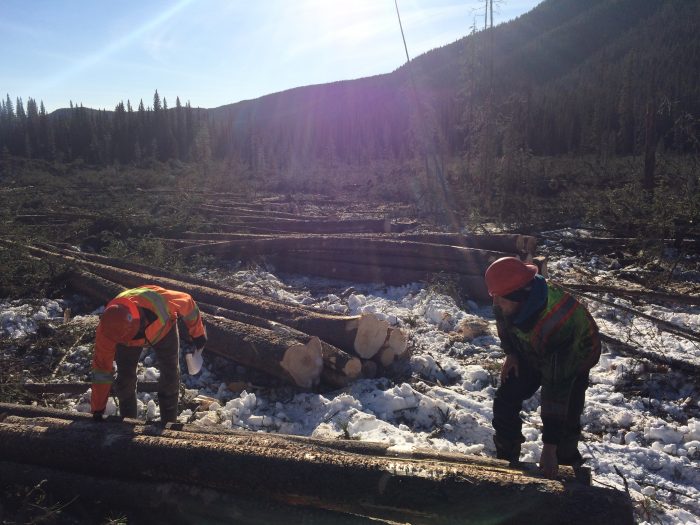
Can you give an example of a time when your work significantly impacted your organization?
Forestry is both an art and a science rolled into one. My job is to continually watch for better or more efficient ways to move timber to the sawmill. One of the biggest impacts of my work is to design or locate haul roads that shorten cycle times and increase our efficiency. I have several examples where I have accomplished this and saved the company a substantial amount of money.
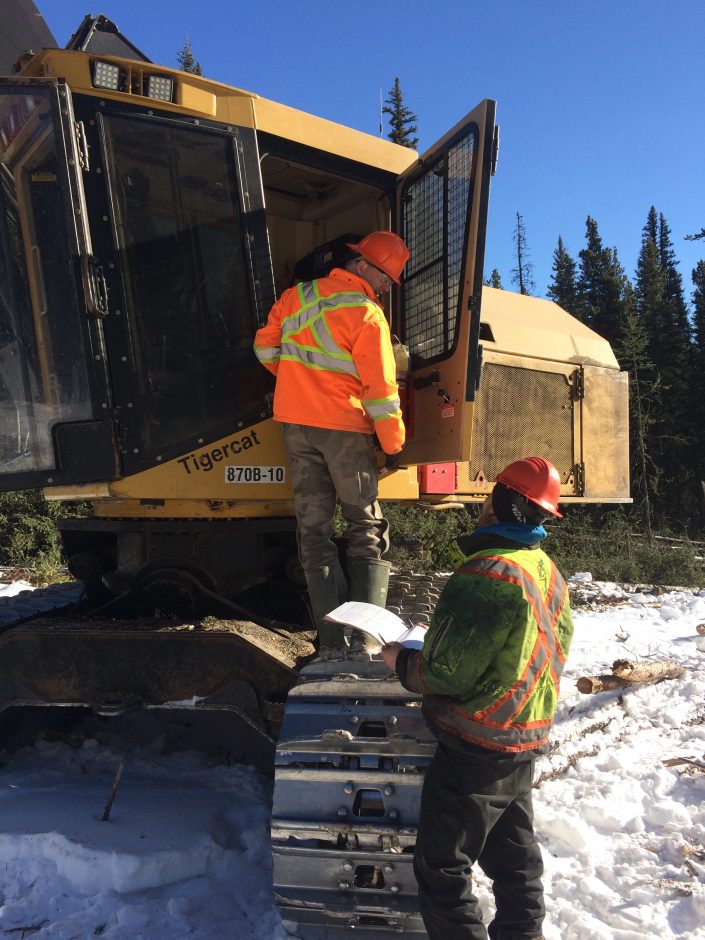
What qualities make up an ideal candidate for a position like yours?
The ideal candidate for a position like mine has a strong desire to be in a forest setting almost continually. A strong understanding of the capabilities and limitations of heavy equipment is also necessary. Operations Supervisors also need good communication and people skills to understand and motivate the people they work with, but also the other people that they liaise with. The person needs to be prepared to work flexible hours and sometimes very long hours as the job often dictates the hours that are necessary to be put in. The other aspect of a supervisor that is likely more important than anything else is the ability to remain calm and focused even under extreme circumstances. The Operations Supervisor is often the person who is expected to directly manage response to unexpected incidents that may range from a natural disaster (flood or fire), to mechanical malfunctions (fluid spills, equipment fires), serious incidents involving heavy equipment or log trucks, and possibly medical emergencies.
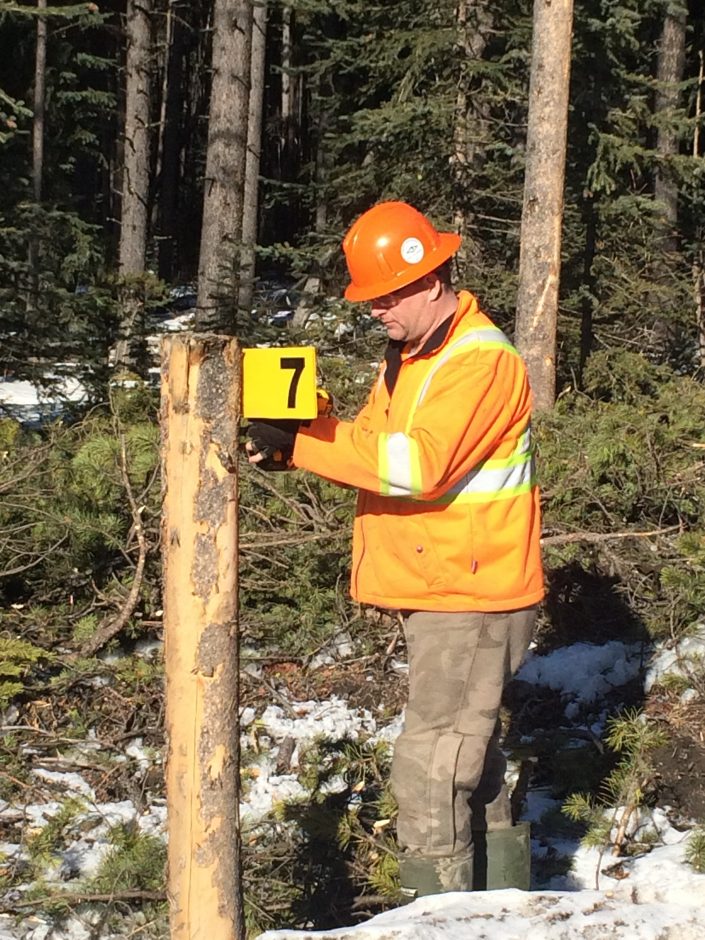
What are some of your favourite aspects of the forest industry?
My favorite aspect of the forest industry is both the physical and organizational environment in which we work. I enjoy the independent nature of the work. We work as a team in the big picture, but each person has a specific role to fill and often we are given free rein to fulfill that role in a manner that we feel is best. I also enjoy the close knit community of people that are involved in the forest industry, generally speaking the circle of people in the industry is fairly small and there is a high level of cooperation to help each other out.
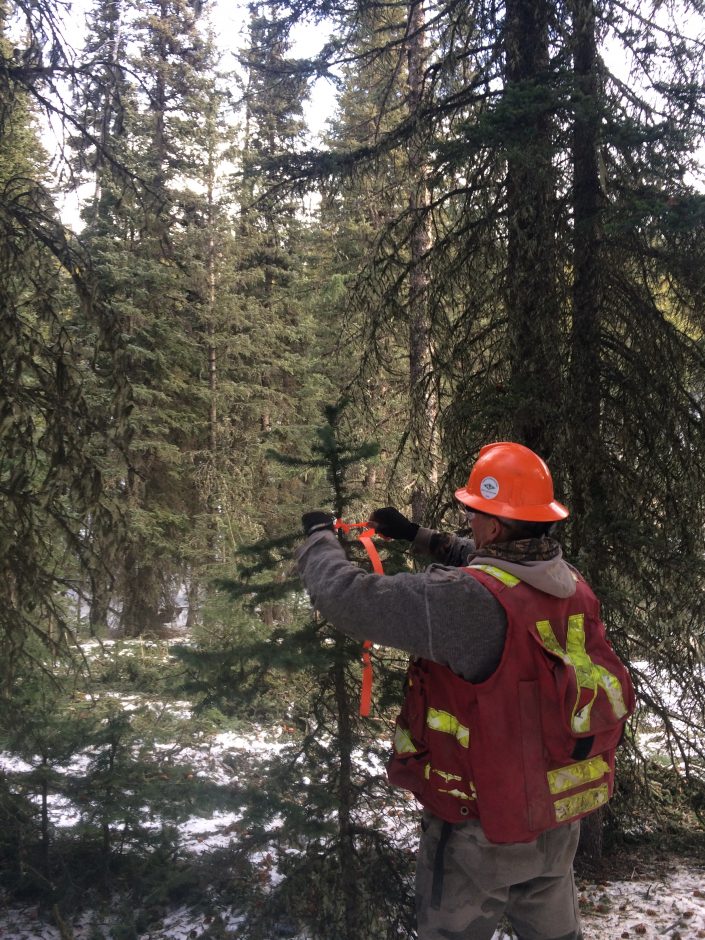
What do you like about living in a forest community?
I absolutely love living in a forestry community. It gives me unequaled access to pursue my favorite recreational activities like hunting, fishing, mountain biking, photography, snowmobiling, etc. I enjoy interacting with like-minded people who live here as well. The history that the forest industry has in my community is also fascinating to me.
To learn more about careers in forest management, check out our careers list.